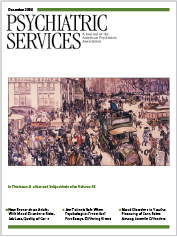An Egg on Three Sticks
An Egg on Three Sticks, Jackie Moyer Fischer's debut novel, depicts a mother's mental illness from the viewpoint of her teenage daughter. With both humor and sadness, the author vividly portrays a 12-year-old Abby against the backdrop of the Vietnam War and social upheaval of 1970s California. We follow Abby's coming of age to the story's tragic yet inevitable climax three years later. The story unfolds as Abby gradually becomes aware of and struggles to understand her mother's inexorable mental illness.
From a creative and literary standpoint the book is successful in bringing to life a number of engaging and memorable characters. Convincingly portrayed are Abby; her tortured and ineffectual father; her best friend, Poppy; and her younger sister, Lisa. Abby's mother is an unpredictable mix of depressive symptoms and psychosis, which the family struggles to contain and normalize.
The story is a compelling and quick read for general audiences of any background. We are immersed in Abby's tumultuous journey through adolescence and the suburban American dream, which has somehow gone so inexplicably and fundamentally wrong. The author unflinchingly describes Abby and her family's plight and disintegration with realism and clarity while simultaneously telling the story of an adolescent teenager struggling through rebellion and conflict to find her own identity. The family relationships, tensions, and dynamics are subtly but powerfully portrayed. We are exposed to and are left with the visceral images and awful weight of things left unsaid over countless evenings of TV dinners and network news.
The novel illustrates well the confusion, denial, stigma, guilt, and anger experienced by the family members and loved ones of those with serious mental illness. In this regard the book could be particularly recommended for significant others who are struggling with their own ability to accept and understand the mental illness of a loved one. The story's depiction of psychiatric treatment in the 1970s, with ten-month inpatient hospitalizations and the side effects of the era's psychotropic medications, makes its generalizability to current treatment of mental illness limited.
The story serves as a reminder of how far psychiatric medication management has progressed in 30 years. Abby's painful descriptions of her mother's uncontrollable akathisia, personality changes, constant sedation, and "blank, hypnotized eyes" provide glimpses of the conflicts our patients still face in deciding between imperfect treatments and intolerable disease.
From the standpoint of its targeted teenage audience, the book falls somewhere in the no-man's-land of being too realistic and disturbing for younger readers and too mired in the first person vernacular of its 13-year-old protagonist to be engaging to readers over the age of 15. Personally, though, I found the first-person teenage neologisms—for example, "grossamundo"—entertaining and refreshing.
The book includes little information about author Jackie Moyer Fischer other than that she is a law school graduate living in Portland, Oregon. Her creative ability and talented characterizations make her an author whose future novels will be worth reading.
Dr. Ruiz-Mellott is a research fellow in the department of psychiatry at Cedars-Sinai Medical Center in Los Angeles.



